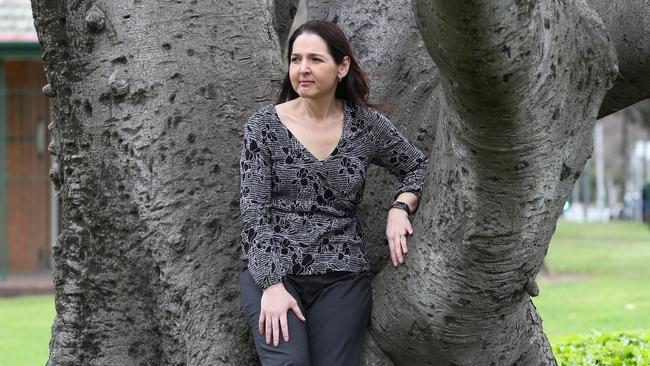Hormone therapy, holistic care to reduce Alzheimer’s, depression risk during menopause
Dual menopause studies have shown hormone therapy could lower Alzheimer’s rates in women, and found the risk of unemployment on menopausal depression.

A groundbreaking study has found that menopause hormone therapy could be used to prevent the progression of dementia and Alzheimer’s disease.
It comes as doctors and researchers gather in Melbourne for the World Congress on Menopause. At the congress, researchers with Belgium’s Ghent University unveiled the results of a study into women accessing MHT, which found a significant reduction across the board in biomarkers associated with Alzheimer’s risk.
With broadening research indicating the comorbidity of Alzheimer’s with other later-life health conditions, the Belgian study has spurred further research into whether women with a family history of cognitive disease could be prescribed hormone therapy in order to head off decline.
Gynaecologist Herman Depypere, who helped with the dementia study, hoped genetic testing for biomarkers associated with hormone changes through menopause could be an affordable and easy way to assess health in later life.
“That’s something we should really focus on in the next few years to optimise life quality, because menopause should not be a problem if you’re treated well. It should be a very nice problem, because we all get old,” Professor Depypere said.

“Women perceive menopause as just one or two years in their life, and then there’s something else. But no, menopause is something that is over a really long period of 30 years.”
The global incidence of dementia is tipped to reach 153 million by 2050.
Also presented at the congress was a Monash University study assessing the impact of life factors on depression in menopausal women, which showed unemployment carried the highest risk.
By analysing three independent studies of depression in women aged 18 to 79 with, researchers filtered through potentially relevant life factors to find the greatest correlated risk for women at varying stages of menopause.
It also showed 6 per cent more women in perimenopause displayed depressive symptoms compared to premenopausal women of the same age.
While the study also accounted for physical health, ethnicity, education, employment, location, smoking, drinking and drug use, these were not found to have significant correlations with menopausal depression. In perimenopausal women, employment accounted for half of the difference in depressive symptoms.
Monash researcher Susan Davis said while factors such as employment, housing and relationships were beyond a doctor’s control, focusing on holistic care would help GPs notice warning signs of potential depression in women.
“But depression needs to be assessed and managed in its own right. Menopause might exacerbate underlying depression, but should not be assumed to be the cause,” Professor Davis said. “We can’t pick cause and effect (with this study) but if you want to think about who a doctor should be targeting, (then) if they are unemployed it should be a red flag. On the other hand, if you look at postmenopausal women, it probably suggests that there is a protective factor of being partnered.”






To join the conversation, please log in. Don't have an account? Register
Join the conversation, you are commenting as Logout